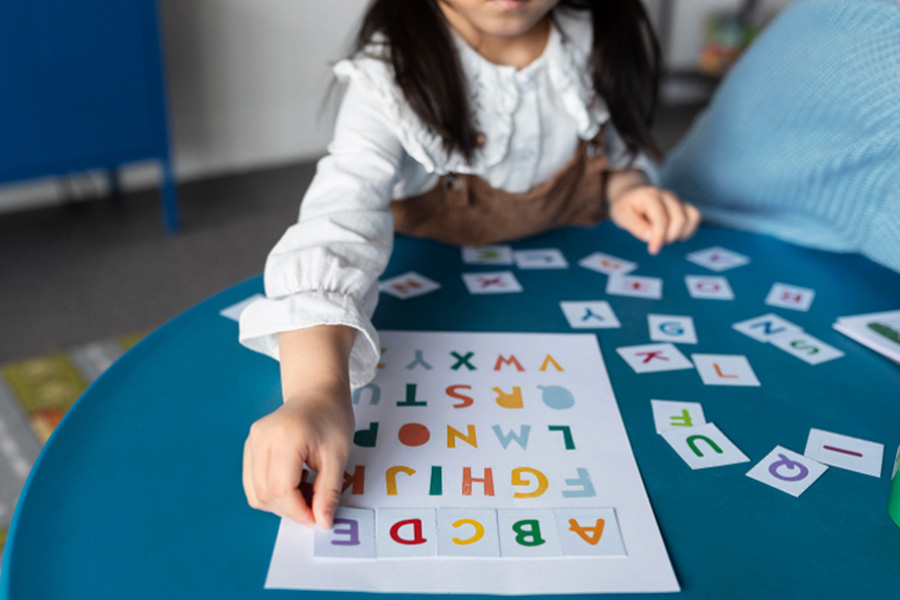Before a child strings words into sentences, they first pick up sounds. Phonics focuses on breaking down language into these small sound units, helping preschoolers recognise, repeat, and use them in daily speech. When children learn the link between letters and sounds, their spoken words become clearer, sharper, and more confident. Instead of stumbling over tricky pronunciations, they gain a sense of rhythm in speech, almost like catching the beat of a song.
Phonics gives children a way to match the sounds they hear with the letters they see. This blend of listening and speaking practice helps reduce mumbling and encourages better articulation. Parents often notice that once their child gets comfortable with phonics, conversations at home become livelier and less of a guessing game, especially when they attend phonics classes in Singapore.
How Phonics Builds Confidence in Communication
A preschooler who can sound out words feels more comfortable sharing ideas. The confidence comes not from memorising, but from understanding how sounds work. Children who attend phonics classes in Singapore are guided through playful activities that turn language learning into something enjoyable. Songs, rhymes, and role-play sessions make speaking less of a chore and more like playtime.
Instead of shying away from speaking up, these children gain the courage to talk in class, recite stories, or ask questions. When a child sees they can be understood by both peers and adults, their confidence grows naturally. This early boost often leads to stronger participation later in school, where speaking clearly is as important as writing neatly.
Phonics and the Link to Vocabulary Growth
Clear speech is not just about pronunciation. It is also about knowing the right words and using them in the right way. Phonics supports vocabulary growth by teaching children to decode new words on their own. Instead of waiting for someone to explain, they can sound out new words and use them in speech.
Children exposed to strong phonics programmes begin to experiment with words in daily conversations. They may playfully rhyme words at home, repeat phrases they hear in class, or invent their own combinations. This habit not only makes their speech more engaging but also strengthens memory. In many cases, phonics-trained preschoolers pick up new words faster and carry them into storytelling or pretend play.
The Role of Phonics in Supporting Bilingual Learning
In Singapore, many children grow up hearing and speaking two or more languages. This can be enriching but also confusing when sounds overlap or differ between languages. Phonics helps preschoolers separate these sounds clearly, making it easier for them to switch between languages without blending them.
Parents who enrol their children in a tuition centre in Singapore often see benefits beyond English. By strengthening sound awareness through phonics, children sharpen listening skills that transfer to other languages. This creates a stronger base for bilingual fluency. When a child can clearly pronounce English while also keeping their Mother Tongue distinct, communication at home and in school becomes smoother.
What Makes a Strong Phonics Class Work
The strength of phonics teaching lies not in long drills but in practical play. Effective phonics classes in Singapore use hands-on activities like sound games, storytelling, and interactive reading. The focus is on making sounds meaningful, so children can quickly use what they learn in real speech.
Teachers guide children through activities that balance listening, speaking, and reading. For example, blending games teach them how small sounds combine to form words. Segmenting games show how words can be broken down into sound parts. These skills help children both in the classroom and in everyday conversations.
Parents looking for support often turn to the best tuition centre in Singapore for phonics training that blends fun with structure. A good centre offers small class sizes, trained teachers, and resources such as audio exercises and storybooks that extend learning beyond the classroom. These extra touches ensure children are not just learning to read but also learning to speak with clarity.
Long-Term Benefits of Phonics on Speech Development
The impact of phonics stretches further than preschool. Children who master phonics early tend to have fewer speech issues later. Since they already understand how sounds work, they can adjust their speech when they encounter new words. This makes reading aloud smoother, presentations easier, and group work more enjoyable.
Studies also show that children with strong phonics foundations are better at spelling and comprehension. Both skills feed back into speech, as children become more precise with their choice of words. Parents who choose a tuition centre in Singapore often see these benefits reflected in their child’s daily communication. Instead of sticking to simple phrases, they build up sentences that reflect growing thought and maturity.
Why Parents Should Act Early
Preschool years are the best time to strengthen speech skills. At this stage, children are curious, playful, and open to repeating sounds without hesitation. Delaying phonics may mean a child develops unclear speech habits that are harder to change later. Starting early ensures that speech clarity grows hand in hand with reading and writing.
Phonics is not a magic trick, but a steady guide for children as they discover the building blocks of language. With support from teachers and reinforcement at home, children can achieve a strong start that carries into their school years. Parents who enrol in the best tuition centre in Singapore often find these early efforts give their child an extra layer of confidence in communication.
Clear Speech Through Phonics
Speech development is not about rushing a child into reading full books, but about giving them the tools to communicate clearly. Phonics helps children find their voice, refine their words, and enjoy the process of speaking. For parents who want their preschooler to gain both clarity and confidence, phonics provides a practical path. Contact The Eton Academy to find out how phonics programmes can support your child’s speech and early learning journey.




